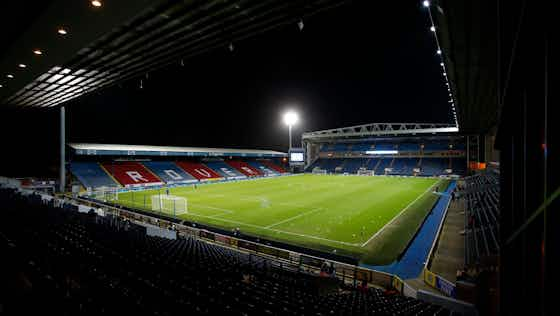Football League World
·26 October 2024
How Blackburn Rovers' owners the Venky's created a net worth of £1.66bn

In partnership with
Yahoo sportsFootball League World
·26 October 2024

A look at how Blackburn Rovers' owners V H Group made their fortune in the business world.
The V H Group, known better in the footballing world as the Venky's, have been owners of Blackburn Rovers for nearly 14 years now. While it hasn't always been plain sailing for the Indian group in Lancashire, here, we look at how they made their fortune in the business world.
The V H Group's decision to enter the footballing world saw them pay a reported £54m to a trust set up by late Rovers' owner Jack Walker, to gain 99.9% control of Blackburn in November 2010.
In doing so, they set up a holding company called Venky's London Ltd for which their ownership of the Ewood Park club would be managed through.
The Indian group had a tough start to life in charge of the 1995 Premier League champions, with their erratic decisions leading to a chaotic first seven years that saw poor managerial appointments and disappointing player recruitment processes, ensuring the club went from the top-flight to League One by 2017.
Supporter unrest has been evident for long periods of Venky's leadership, and their inexperience in the footballing world (Blackburn being their first and only venture into the sporting industry) was clear.
However, Rovers bounced back to the Championship at the first attempt at the conclusion of the 2017/2018 season, and things have been a little more stable and consistent since.
Now under the stewardship of manager John Eustace, Blackburn look a steady second-tier outfit with genuine hopes of a play-off place and a shot at a potential return to the Premier League.
The V H Group's tenure has certainly been eventful, but they appear to be learning from past mistakes.

Reportedly said to have a net worth of £1.66bn, the V H Group umbrella covers multiple businesses across numerous different countries, mainly in Asia and Europe.
Mostly renowned for their involvement in the poultry industry, the Venkateshwara Hatcheries Group has its headquarters in the west Indian city of Pune.
Over the last 53 years, they have grown their enterprise steadily, but considerably, and now have a firm interest in the pharmaceutical (both human and animal) field, along with healthcare, vaccines, and, of course, processed food.
Initially starting out as a hatchery for the poultry industry, the V H Group now has research and breeding farms aplenty across India, while their reach has spread to the likes of Vietnam, Bangladesh, Singapore, and more recently, Switzerland.
Pharmaceuticals are known to be a profitable business, and it seems that Venky's clever growth into that side of things, combined with their long-standing stake in the food industry, has allowed them to amass considerable and ever-growing wealth.
Indian owners are certainly rare in English football, as are those that started out with a bird hatchery business over half a century ago. It's certainly unique, though the vast array of varying club custodian profiles are changing and growing all the time to meet the demands of the modern world as a whole.

A recent official annual report shows the V H Group to be extremely successful in their field(s), making substantial profits in most areas.
Their net worth of £1.66bn is huge by comparison to many owners of their second tier competitors, with portsmouth.co.uk recently putting them among the top seven richest Championship owners. American Alan Pace, in charge of local rivals Burnley, for example, has a net wealth of considerably less, estimated at £190m.
In addition to that, according to a Give Me Sport report, the eye-watering sum even dwarfs that of five current Premier League sides in the shape of Brentford, Nottingham Forest, Brighton & Hove Albion, AFC Bournemouth, and Southampton.
However, concerns have been raised over the last year or so, with Rovers' funding being affected by an Indian government investigation into Venky's parent company.
While the football club is not implicated in the inquiry at all, it is causing the custodians unwanted difficulties when making funds available to the club.
Rovers CEO Steve Waggott told the Lancashire Telegraph that the club will be going to court in an attempt to remove any restrictions that are causing the club problems, something they've done in the past with a successful outcome.
While the Venky's are having to put up a guarantee for every pound spent by the club, essentially costing the owners double in the short-term, it's hoped this can be removed imminently, as Rovers have nothing to do with any external investigations.
It's just another setback the club is having to overcome. While things have certainly improved for Blackburn fans in recent years, and Eustace and his players are doing a superb job on the pitch at present, and the V H Group have been hugely successful with multiple businesses away from football, their sporting ownership model is still very much a work in progress. Their ability to make money away from the game, however, is unquestionable.






























































